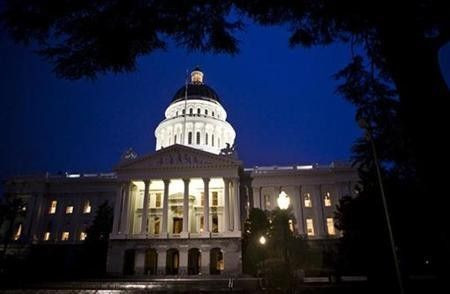Companies Lobbying Government Keep Spending Secret From Shareholders: Report

Major publicly traded corporations may be owned by their shareholders, but that does not mean they let those shareholders know how much of their money is being used by executives to influence public officials. A new report finds that the vast majority of companies listed in the S&P 500 do not disclose their lobbying expenditures to their own shareholders.
The study from the Investor Responsibility Research Center Institute compared corporate disclosure statements with government lobbying records in six states: California, Florida, Minnesota, New Jersey, New York, and Washington. It found that just 12 percent of publicly traded corporations in the S&P 500 disclose their lobbying expenditures, even as an increasing number of shareholder resolutions are pushing corporations to disclose that spending.
“The federal government, increasingly, is asking states to take the lead on major policymaking, touching everything from healthcare to immigration and the environment,” said Heidi Welsh of IIRC, which studies corporate governance. “But we know almost nothing about corporate spending to influence state officials who are making the decisions. Uniform disclosure standards for companies could fix this problem and enable investors to compare companies rather than being left in the dark.”
Because of the lack of disclosure, investors have no central clearinghouse through which to assess how much of their money is being spent on political influence peddling. On a state-by-state level, while some states have stringent lobbying disclosure requirements, many others require very little disclosure — and 22 states have no lobbying spending disclosure requirements at all, according to IIRC.
Lobbying state government has become big business: a Washington Post report found that between 2013 and 2014, $2.2 billion was spent on lobbying in 28 states. The Post noted that almost every state has seen a jump in lobbying over the last decade.
In the six states that IIRC studied, the industries with some of the biggest business were among the biggest spenders on lobbying.
Major healthcare corporations spent $41 million on lobbying between 2012 and 2015 — a time when the insurance sector was pursuing state approval of mergers as well as the state implementation of the federal Affordable Care Act. In that same time period, energy companies spent more than $27 million on lobbying in those states — with the bulk being spent by Chevron in California as that state considered climate change legislation aimed at reducing carbon emissions. Among the other big lobbying spenders were tobacco giant Altria and telecom conglomerate AT&T.
Under pressure from shareholder resolutions demanding more accountability, most major companies in recent years have adopted official corporate policies about spending on campaign contributions and elections. Among the 100 largest firms in the S&P 500, only one —Warren Buffett’s Berkshire Hathaway — discloses no official details of its political activities, according to IIRC’s review. However, those disclosures typically do not extend to spending on legislative lobbying at the state level.
© Copyright IBTimes 2024. All rights reserved.






















